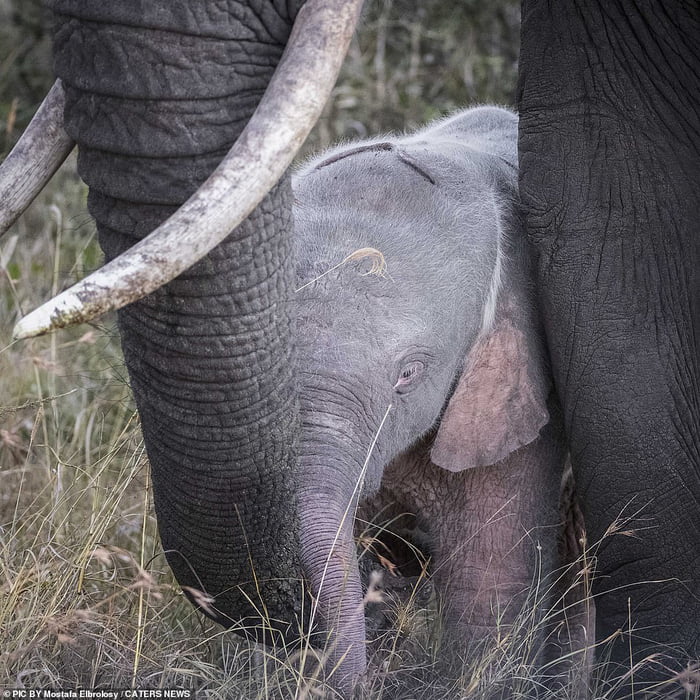
Despite the challenges associated with its albinism, a baby elephant born with this rare condition is doing well in the wild.
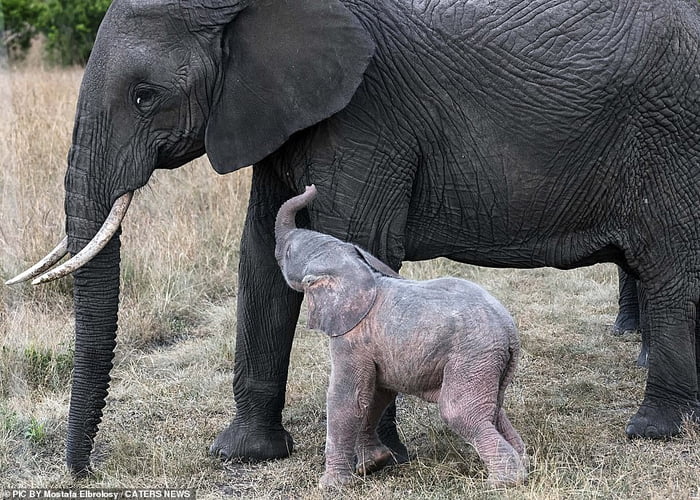
A rare baby calf was spotted in Maasai Mara, Kenya, earlier this year in April. Its unique pink skin caught the attention of a wildlife photographer who managed to capture it on camera. Despite its unusual appearance, the calf seems to be doing well and is growing strong.
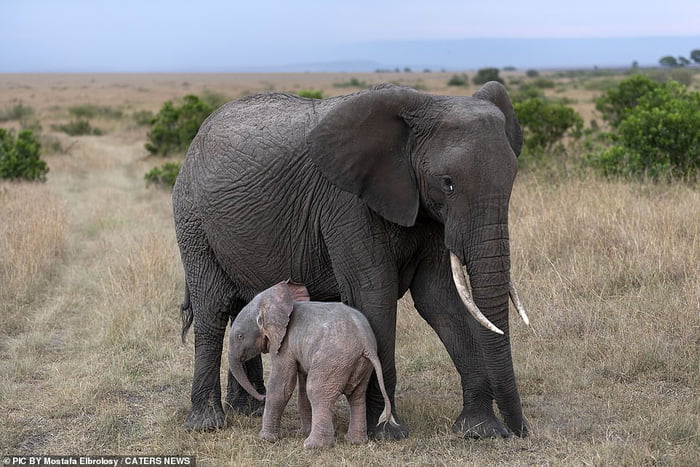
Mostafa Elbrolosy, a ranger overseeing a safari camp, excitedly told Daily Mail about his surprise at witnessing the birth of a rare albino elephant calf up close. The sighting was truly extraordinary.
“Rare animals always capture the attention of wildlife enthusiasts, and being able to witness and photograph such a unique baby was like a dream come true,” Elbrolosy expressed. Living in the Maasai Mara and managing his quaint camp, he was alerted via radio about a female elephant giving birth to the albino calf. Without hesitation, he grabbed his camera and headed out with one of his guides to witness the rare spectacle.
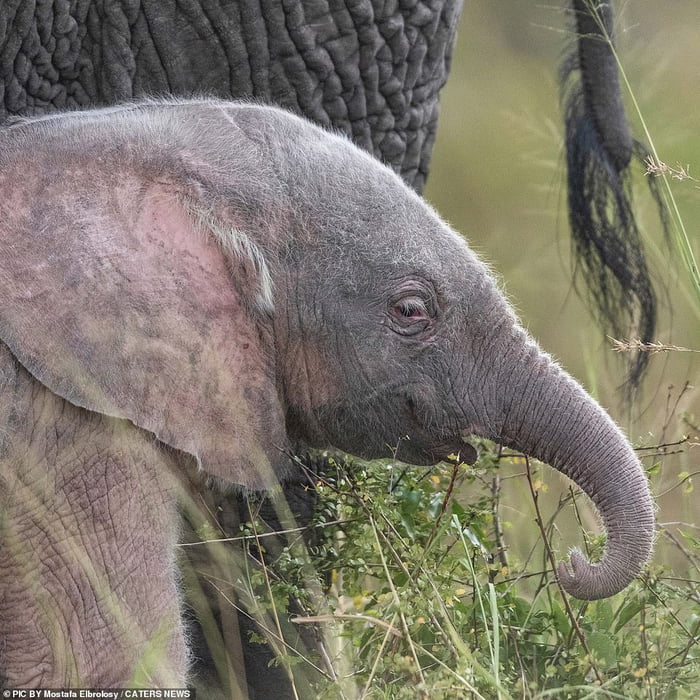
In the afternoon, we were thrilled to finally come across the calf after searching for a while. There were only a few people there to witness it, as nobody expected it to be an albino. I felt lucky to be able to see and capture photos of this incredibly rare baby.
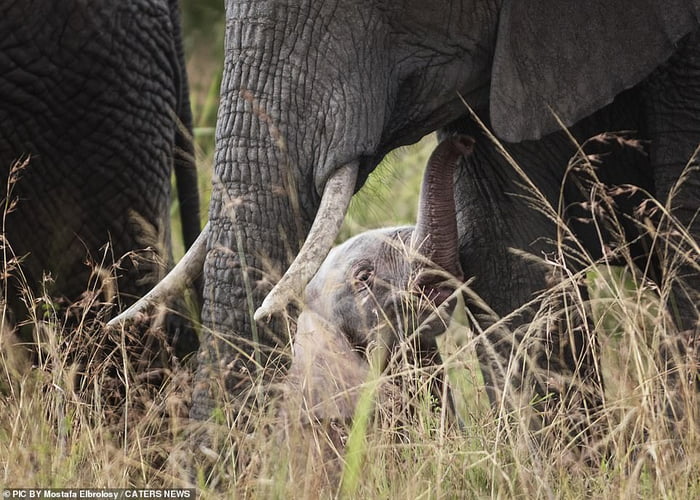
Elbrolosy observed how the newborn calf was unusually large and healthy under the intense sunlight, a challenging environment for a young animal. Despite being only eight hours old, the calf was well-protected by the herd, trying to feed from its mother and already walking beside her. It was truly a thrilling experience to witness such a remarkable sight.
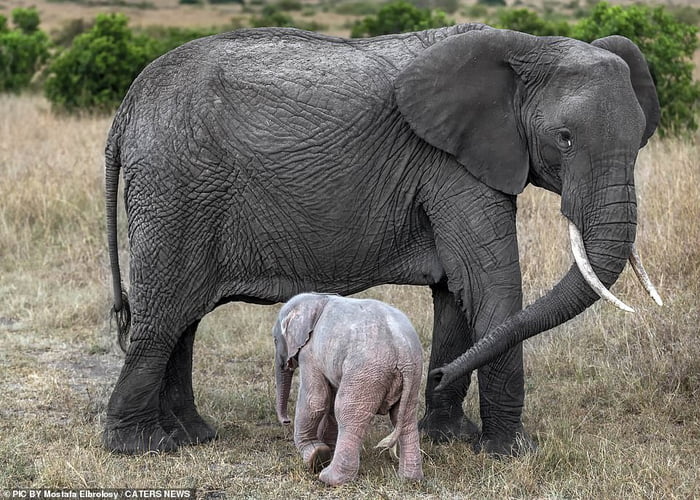
Albinism is a condition that occurs when there is a lack of pigment production in the body, resulting in pale skin and pink eyes in elephants. This can also affect their vision, potentially leading to blindness as they get older. Some elephants may have areas of non-pigmented skin behind their ears, but true albinos may experience social rejection from other elephants due to their unique appearance.
